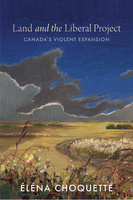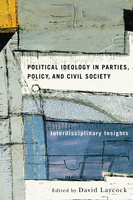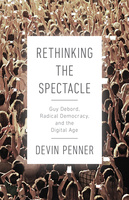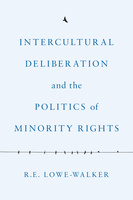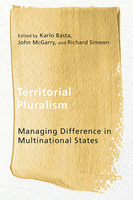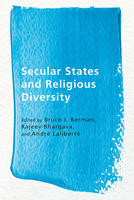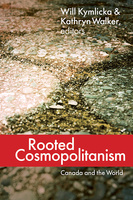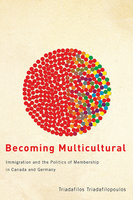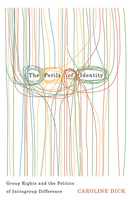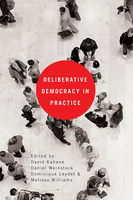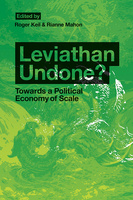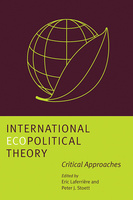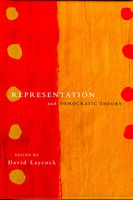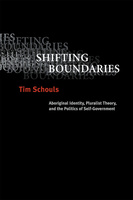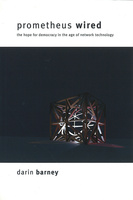The Civil Sphere in Canada
The Civil Sphere in Canada shows why a socially just, inclusive society hinges on a robust and dynamic civil sphere.
Land and the Liberal Project
Canada’s Violent Expansion
Land and the Liberal Project explores the “improving” ideas that informed the expansion of Canada from coast to coast, exposing the justifications for state violence and appropriation of Indigenous territory, thus challenging our assumptions about Canadian sovereignty.
Activism, Inclusion, and the Challenges of Deliberative Democracy
Activism, Inclusion, and the Challenges of Deliberative Democracy investigates the failure of deliberative democracy to acknowledge the democratic contribution of activism, offering an alternative theoretical approach that makes a key distinction between contributing to and deliberating with.
Political Ideology in Parties, Policy, and Civil Society
Interdisciplinary Insights
This important study demonstrates that varied disciplinary approaches can illuminate the reach and impact of political ideologies on both politics and society.
Rethinking the Spectacle
Guy Debord, Radical Democracy, and the Digital Age
Drawing on radical democratic theory and the ideas of political theorist Guy Debord, Rethinking the Spectacle examines the tension between spectacles and political agency in our digital society.
Lived Fictions
Unity and Exclusion in Canadian Politics
Bringing big thinking back to Canadian politics, Lived Fictions demonstrates how theories of political unity always exclude and shows why our comfortable assumptions about the promises of Canadian politics mask historical failures.
Intercultural Deliberation and the Politics of Minority Rights
A unique contribution to the literature on minority rights, Intercultural Deliberation and the Politics of Minority Rights examines the role of cultural difference in minority rights claims, building a case for inclusive political deliberation in liberal democracies.
The Moral Economies of Ethnic and Nationalist Claims
Leading scholars investigate the complex role that competing moral economies play in ethnic and nationalist conflicts.
From Left to Right
Maternalism and Women’s Political Activism in Postwar Canada
This fresh look at Canadian women’s political engagement during the Cold War reveals that whether they were on the “left” or “right” end of the political spectrum, women were motivated by similar concerns and the desire to forge a new vision for their nation.
Territorial Pluralism
Managing Difference in Multinational States
This volume examines the implications of territorial pluralism for the peaceful and democratic management of difference in states characterized by ethnic, national, linguistic, or cultural divisions.
Secular States and Religious Diversity
Examines the limitations and dilemmas of government responses to religious diversity and how secular states deal (and should deal) with such pluralism.
Imperfect Democracies
The Democratic Deficit in Canada and the United States
This timely book evaluates and compares alleged democratic deficits in Canada and the United States and proposes solutions to remedy them.
Rooted Cosmopolitanism
Canada and the World
Can national loyalties be reconciled with larger commitments to global well-being?
Becoming Multicultural
Immigration and the Politics of Membership in Canada and Germany
This book demonstrates how global human rights norms intersected with domestic political identities and institutions to transform Canada and Germany into diverse multicultural societies in the second half of the twentieth century.
The Perils of Identity
Group Rights and the Politics of Intragroup Difference
Caroline Dick asks how group identity claims, especially in the courts, obscure significant intragroup differences.
Identity Politics in the Public Realm
Bringing Institutions Back In
This volume furthers the multiculturalism debate by assessing whether public institutions are capable of evaluating minority group claims fairly.
Against Orthodoxy
Studies in Nationalism
This volume challenges conventional approaches to the study of nationalism in the context of its violent resurgence.
Deliberative Democracy in Practice
Leading theorists debate the strengths and limitations of deliberative democracy in theory and practice.
Leviathan Undone?
Towards a Political Economy of Scale
Bringing together leading theorists and scholars in contemporary spatial thinking and political economy, this volume presents an unprecedented collection of essays on scale, as well as case studies on the restructuring of our global society.
Bringing the Passions Back In
The Emotions in Political Philosophy
Combining intellectual history and political theory, the contributors to Bringing the Passions Back In illuminate the place of emotions in modern liberal and democratic politics.
In Search of Canadian Political Culture
The most thorough review of the national political ethos written in a generation, In Search of Canadian Political Culture offers a bottom-up, regional analysis that challenges how we think and write about Canada. It will interest specialists in Canadian political culture and generalists in Canadian politics.
International Ecopolitical Theory
Critical Approaches
Representation and Democratic Theory
This volume investigates theoretical and practical aspects of innovative political representation in the early 21st century.
Shifting Boundaries
Aboriginal Identity, Pluralist Theory, and the Politics of Self-Government
Using relational pluralism as a theoretical lens, the author takes a fresh look at the complex issue of aboriginal self-government.
Liberalism, Nationalism, Citizenship
Essays on the Problem of Political Community
A brilliant, ambitious rethinking of the nature of political community and the challenges to modern citizenship by one of Canada's foremost political scientists.
Democracy
A History of Ideas
This book describes democracy as a contest of values. Equality and liberty, like justice and fairness, are among our ultimate ideals, but no single value is supreme.
Prometheus Wired
The Hope for Democracy in the Age of Network Technology
Describing and documenting the actual effects of computer networks on people's experience in the workplace, marketplace, and community, the book argues that the conditions of surveillance and corporate control far outweigh those of information access as key elements in the social and political presence of network computing.


